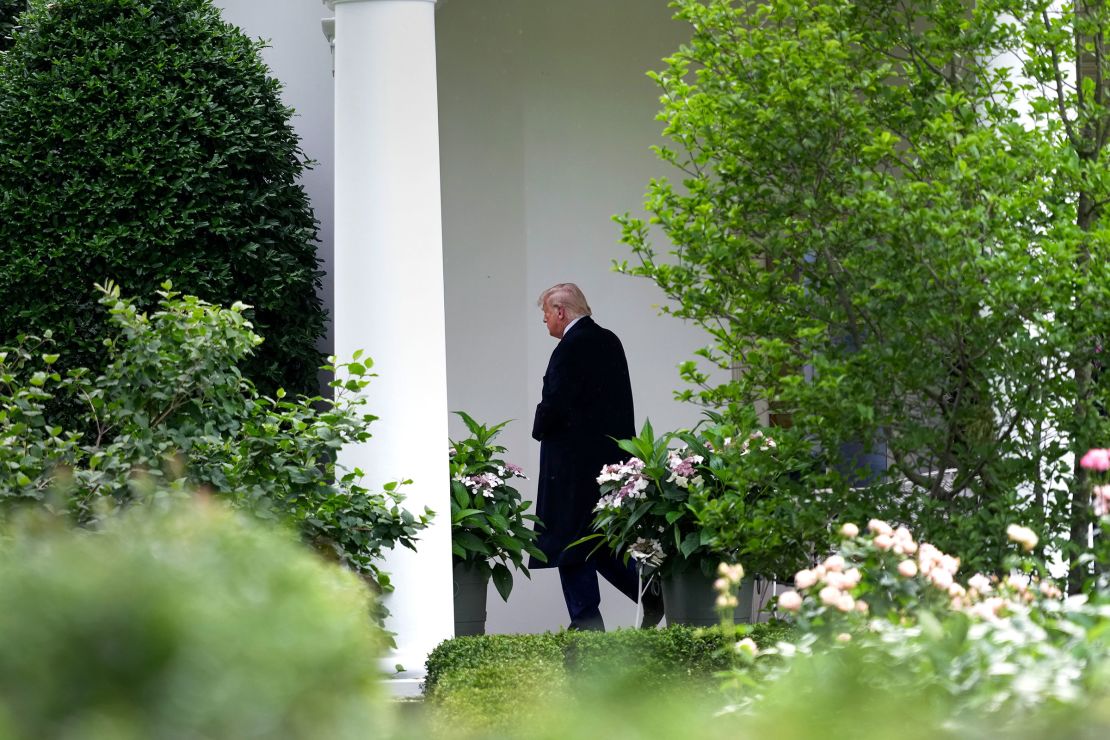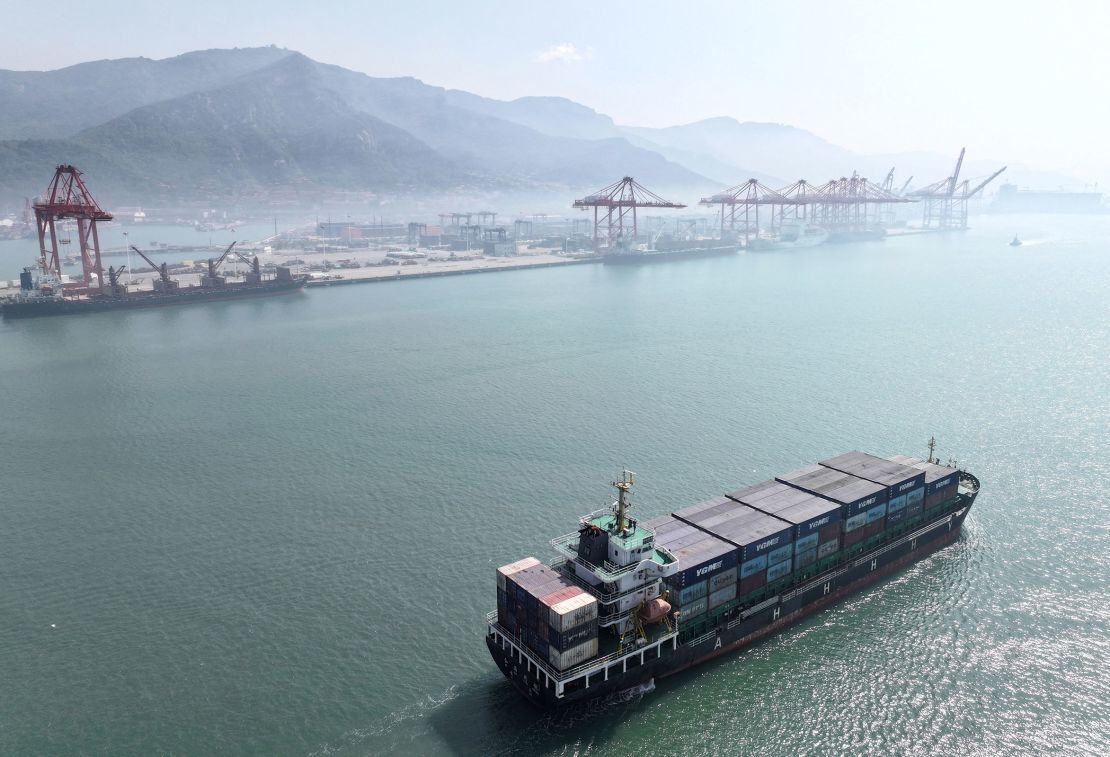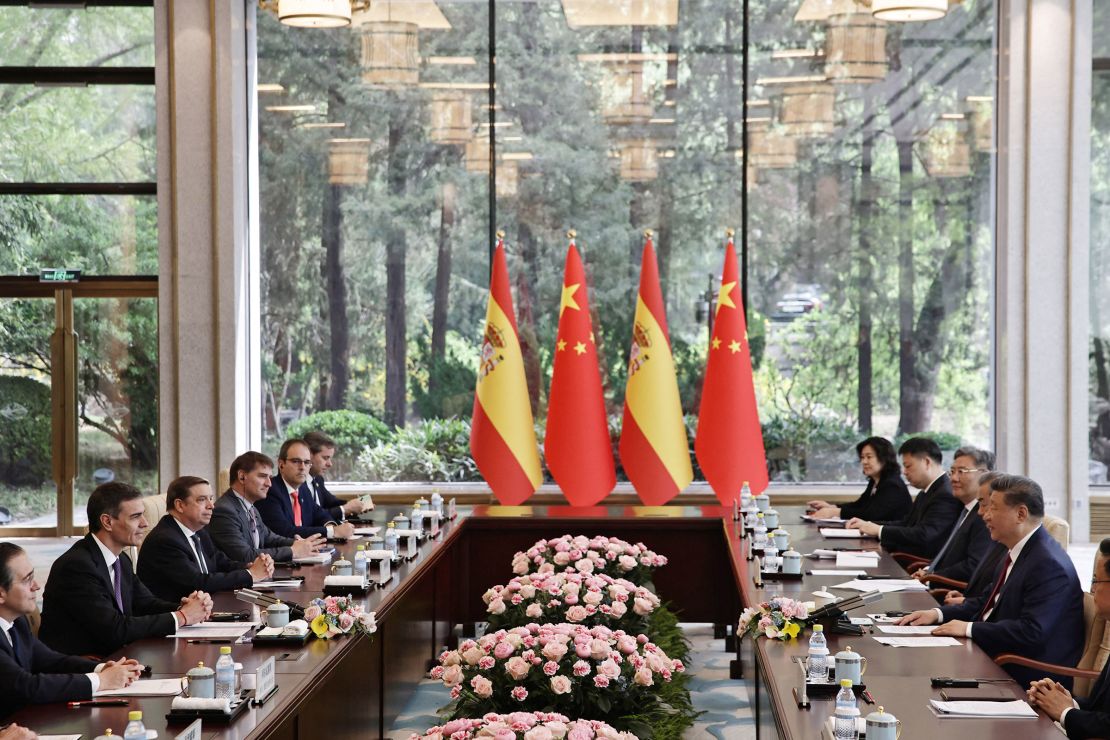Hong Kong
CNN
—
A surprise truce in a spiraling tariff war between the US and China last week was hailed by Chinese pundits as a success for the country. But Beijing is gearing up for a rocky path in relations, and negotiations, ahead.
Already, in the days immediately following the May 12 agreement between American and Chinese negotiators in Geneva, Beijing has been lashing out at Washington.
On Monday, China’s Commerce Ministry accused the US of “undermining” the Geneva talks after the Trump administration warned companies against using AI chips made by national tech champion Huawei. Two days later, it said Washington was “abusing export controls to suppress and contain China” referring again to Trump guidelines on AI chips.
Beijing has also stuck to its stance on fentanyl, calling the drug scourge the “US’s problem, not China’s” — even as further collaboration with Washington on curbing the production of chemicals that can be used to make the drug could help Beijing whittle down remaining US tariffs on its goods.
China’s tough talk sends a clear signal ahead of expected negotiations: That even as Beijing stands to face major economic pain from trade frictions, it’s in no mood for quick concessions at the expense of its own image or interests.
It’s also a reminder that despite the temporary dial down, an entrenched US-China strategic rivalry will cast a heavy shadow over those talks. Washington now views an increasingly assertive China as a threat and has moved to tighten controls on Chinese access to American tech and investment, while shoring up its Asian alliances — acts Beijing view as “containment.”

The clock is already ticking on trade negotiations, as the truce agreed by American and Chinese officials earlier this month lasts only 90 days. Under that deal, the two sides agreed to reduce by 115 percentage point tariffs that had amounted to a de facto trade embargo between two highly integrated economies — leaving assembly lines stalled, ports quieted and companies on both sides reeling with how to cope.
There has been no announcement of further trade talks between the US and China, though US trade representative Jamieson Greer and Chinese trade envoy Li Chenggang met on the sidelines of a gathering of APEC trade ministers in South Korea last week, Reuters reported. On Friday, China’s Ministry of Foreign Affairs said Vice Minister Ma Zhaoxu spoke with US State Department Deputy Secretary for Management and Resources Richard Verma on China-US relations.
“The revival of US-China trade ties benefits both sides and the global economy,” China’s state broadcaster CCTV said amicably on May 14 when the reductions went into effect, taking a more modest tone than pundits like Hu Xijin, the former editor of a state-linked nationalist tabloid, who had called the outcome a “huge victory” for China.
But, CCTV added, the US must “completely correct” its “wrongdoing of making excuses to recklessly impose tariffs. Dialogue can begin, but hegemony must end.”

‘No delusion’
When Trump announced so-called reciprocal duties on trade partners around the world last month, China took a different approach to most countries, swiftly retaliating with its own measures.
And it didn’t back down even when the US president then paused most duties on other countries but raised them on China, with Beijing projecting itself as a global leader standing up to a bully as their tit-for-tat tariffs spiraled higher.
Now, Chinese leaders likely feel “reassured that their US strategy is on the right track,” according to geopolitical strategist Brian Wong, an assistant professor at the University of Hong Kong.
But the question for Beijing is how to spin that into a lasting victory for its economy — and its narrative, despite a deep mutual mistrust and mounting US-China competition in tech, military prowess and global influence, not to mention a president known for his brash policymaking.
“There is absolutely no delusion on the part of (China’s) senior decision makers concerning … an easing of Sino-American tensions,” said Wong.
The stakes are high for China to make sure tariffs are reduced for its single largest export market – and don’t ratchet back up. If the current reduced duties remain in place, US-China trade could be cut by half, reducing China’s growth by 1.6% and leading to four to six million job losses, according to chief Asia-Pacific economist Alicia Garcia Herrero at Natixis, an investment bank.
The Trump administration has yet to lay out a clear set of demands for negotiations with China, but the president has long railed against the US’s roughly $300 billion trade deficit with China and blamed the country for the offshoring of American jobs and decline of US manufacturing.

Weathering the storm
Despite its tough talk, observers say Beijing is likely prepared to make some concessions. That could include returning to or expanding on a trade agreement to buy more US goods reached during Trump’s first trade war, which was never fully implemented. Law enforcement collaboration or tighter controls on the production of precursor chemicals used to make fentanyl could be another.
“The Chinese are willing to make deals, in order to weather the storm called Trump,” said Yun Sun, director of the China program at the Stimson Center think tank in Washington. “If there is a way they can minimize the cost and stabilize bilateral relations … that is preferred. But they want US to be practical and reasonable.”
There are clear friction points. Beijing would likely want to work toward closing the trade gap by buying high end American technology, much of which is now banned for sale there.
Chinese officials may also be wary of negotiating too broadly with Trump’s team and giving concessions connected to opening its economic system, which Western countries have long been calling for.
But Beijing also has its own leverage, as it appears to continue to keep tight control over its rare earth exports that are critical to automobile, aerospace and military industries.
And observers see China as more able to withstand economic pain than the US. That’s partly because Chinese leader Xi Jinping, a strongman atop a tightly controlled Communist Party system, isn’t vulnerable in the same way as Trump to public backlash over economic pain and tanking stock prices.
“Although the effects of the tariffs on China’s economy will become sharper, Beijing believes that it can endure the trade war longer than the United States can,” former Chinese diplomat Zhou Xiaoming wrote in an online analysis earlier this month ahead of the Geneva talks.
Where negotiations land by August 12, when the 90-day window closes, will have a major impact on the broader trajectory of relations between the rival global powers. But in the meantime, Beijing is continuing to prepare for a long-term rupture with the US.
Trade tensions have added urgency to China’s twin drives to boost domestic consumption and expand other export markets as the government looks for ways to offset the potential loss of American customers.

Xi and his officials have launched a flurry of diplomacy targeting partners from Latin America to Europe and Southeast Asia projecting China as a responsible partner – and offering to bolster cooperation or expand free trade.
Beijing has done “brilliantly” in this regard, according to Suisheng Zhao, director of the Center for China-US Cooperation at Josef Korbel School of International Studies in Denver. “If Trump continues this (global) tariff war, that will give a lot of strategic advantage to China.”
And that’s important for Beijing, he added, because regardless of what happens in the next 90 days, the broader US-China rivalry means both hope to become less reliant on the other.
“It doesn’t matter what they talk about (in negotiations) … they’d (each) rather reduce their trade with the other – that’s the trend,” he said.
CNN’s Joyce Jiang contributed to this report.



